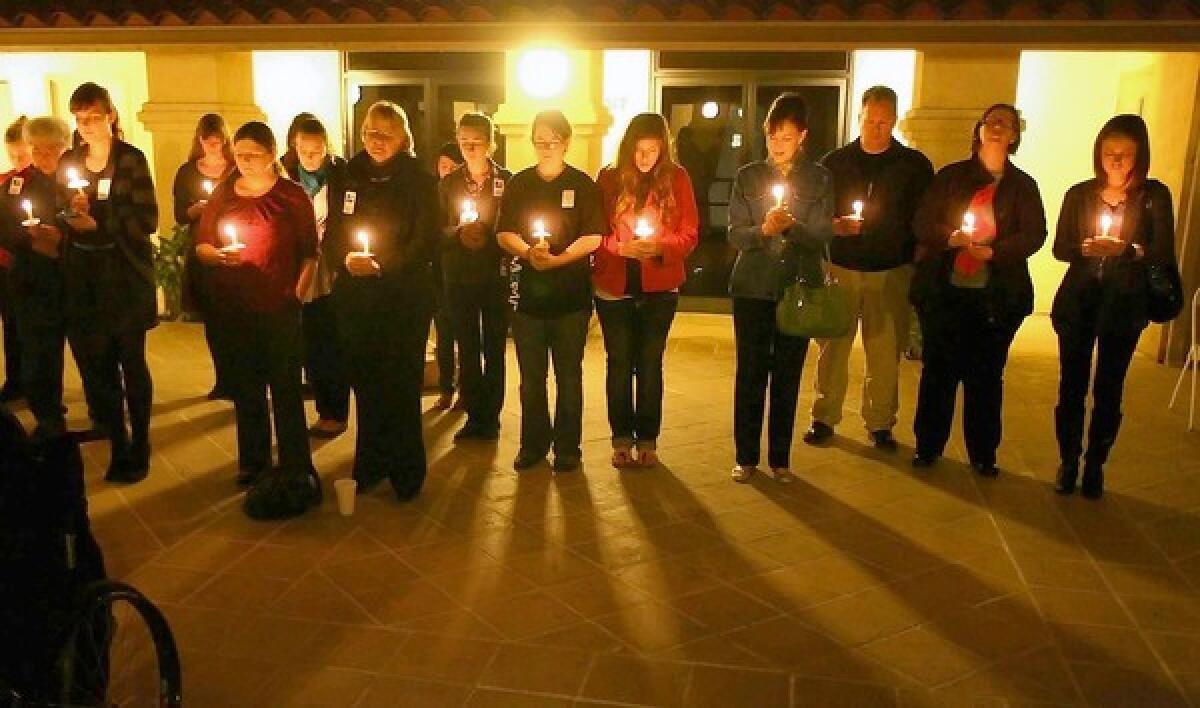Commentary: Why has human trafficking worsened during a pandemic?

- Share via
Although the pandemic has halted much of our country’s operations, it hasn’t stopped some of its most dangerous criminals: Human traffickers.
While the world reels from the effects of COVID-19, human traffickers are capitalizing on the pandemic, continuing to prey on the most vulnerable. Calls to the National Human Trafficking Hotline have increased by more than 40% during the COVID-19 pandemic compared to the same time last year. Despite stay-at-home orders, people are continuing to purchase sex — placing sex trafficking victims’ health and safety and that of entire communities in jeopardy.
Orange County is not immune to this problem. In 2002, O.C.’s first known victim, a 10-year-old Egyptian girl and victim of labor trafficking, was identified. Two years later, Waymakers co-founded the O.C. Human Trafficking Task Force to fight human trafficking in partnership with law enforcement and the community. In fact, the 2019 Human Trafficking Victim Report shows that over a two-year period the task force identified a total of 415 human trafficking victims.
During COVID-19 shutdowns, traffickers are more easily exposing already vulnerable and desperate victims through high unemployment rates, universal economic collapses, increased screen time, loss of community support systems, language barriers and immigration status — all of which open doors for victims to be lured into labor or commercial sexual exploitation by force, fraud or coercion.
It’s easy to Google statistics or numbers, but for many, numbers simply gloss over the horrific stories they represent — but we need to make it personal. Each victim has their own disturbing story of abuse and fight for justice. One victim advocate broke it down, saying, “It may be just one victim, but that one victim in one month was sold 150 times, raped by 150 men and beaten so her trafficker can pocket $15,000.” Once these victims are mentally, physically, sexually and verbally broken down, they lose all sense of humanity and become objects.
Let’s be clear. Human trafficking is a violent and continuous act upon vulnerable victims. It is not a new word for prostitution; there are no “business partnerships” within these dysfunctional dynamics of power, control and violence. At Waymakers, we have discovered raped, beaten, threatened and kidnapped victims who were struggling to survive in the shadows of what the community mistakenly thinks is “prostitution.”
Compounding the physical and emotional trauma these victims face is the new challenge of getting justice in the wake of stay-at-home orders, which greatly impacted the processes of the criminal justice system. The devastating consequence is the loss of the victims’ rights and voices movement. Victims are still not being supported and heard as COVID-19 limitations further complicate an already difficult set of circumstances for the most traumatized.
Pre-pandemic, half of Waymakers’ victim referrals came from local law enforcement. The other half consisted of a combination of NGOs, social services, faith-based organizations, the National Human Trafficking Hotline, the O.C. Human Trafficking Task Force website, hospitals and other government entities. Today, roughly 75% of our referrals come from community partners and individuals. Our community is stepping in to support victims as COVID-19 reprioritized law enforcement efforts across Orange County and the United States.
We need your eyes and ears to help identify suspected human trafficking situations. Help us shine the spotlight on dangerous human traffickers obsessed with making money from the rape and unimaginable destruction of human lives and families. And let’s stand alongside victims who display such strength and resiliency and show them that they are not alone — we are their allies.
Be watchful, learn the indicators and call your local police department, the National Human Trafficking Hotline at (888) 373-7888 or text “HELP” or “INFO” to 233733 for 24/7 support. You can also learn more about the issue in Orange County and how you can support our united effort to protect victims at ochumantrafficking.com.
Let’s make sure all victims are seen and heard amid the public health crisis.
The writer is director of victim assistance programs at Waymakers, which serves as the administrator and lead victim services agency for the Orange County Human Trafficking Task Force. For more about Waymakers, visit waymakersoc.org.
All the latest on Orange County from Orange County.
Get our free TimesOC newsletter.
You may occasionally receive promotional content from the Daily Pilot.



